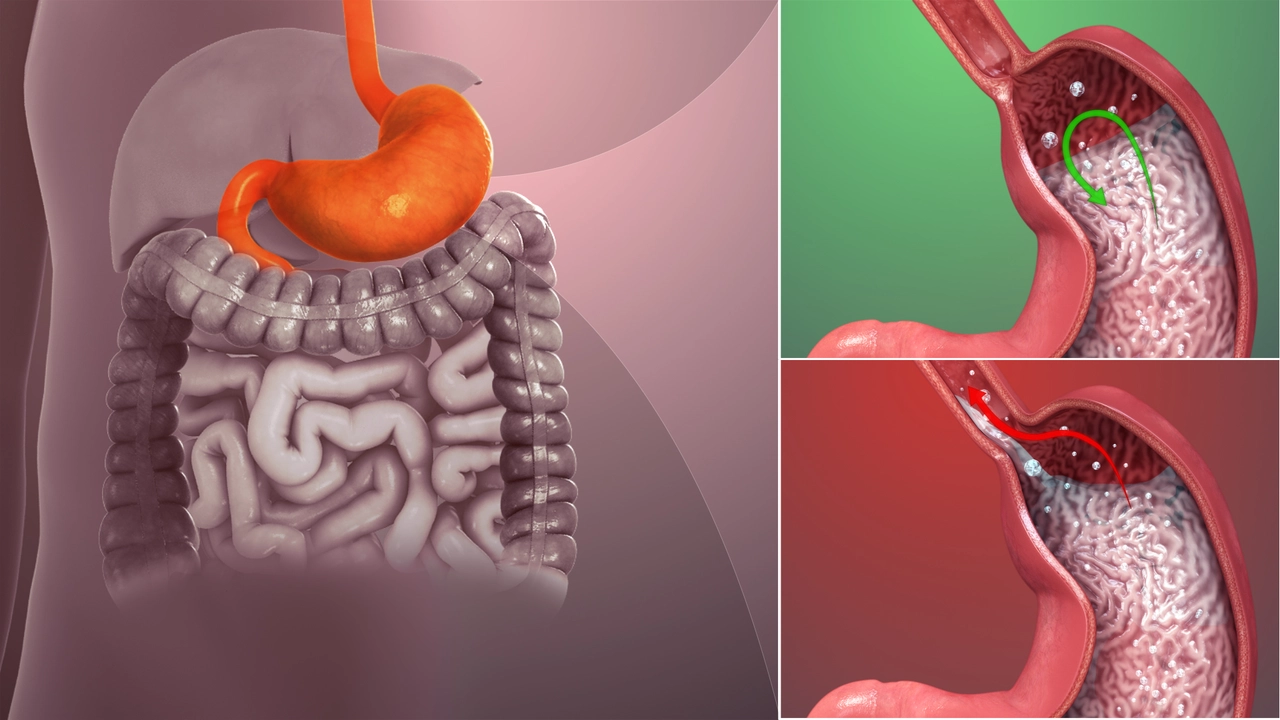Erosive Esophagitis: What It Is and What To Do
If you get frequent heartburn or pain when swallowing, erosive esophagitis could be the reason. It's when stomach acid repeatedly damages the lining of the esophagus, causing visible sores or erosions. That sounds scary, but many people improve quickly with the right steps.
This page gives clear, useful info: how doctors diagnose it, what treatments work, and smart daily habits that speed healing. No jargon—just practical tips you can use or bring to your next doctor's visit.
How it's diagnosed and why it matters
Doctors usually suspect erosive esophagitis from symptoms like constant heartburn, chest pain, coughing, or trouble swallowing. The definitive test is an upper endoscopy (EGD) where a thin camera checks the esophagus. That lets the doctor see erosions and, if needed, take a small biopsy to rule out infection or other causes.
Why act early? Ongoing erosion can lead to ulcers, bleeding, scarring, and narrowing of the esophagus. Treating it reduces pain and prevents complications.
Practical treatments and daily habits that help
First-line treatment is acid suppression. Proton pump inhibitors (PPIs) like omeprazole or esomeprazole are commonly used to let the esophagus heal. Doctors usually prescribe a PPI for several weeks and then reassess. Follow your prescriber's dose and timing—PPIs often work best taken 30–60 minutes before a meal.
H2 blockers (like ranitidine alternatives) and antacids can help short-term, but they don’t heal erosions as reliably as PPIs. If symptoms persist despite proper treatment, your doctor may order an endoscopy or change medications.
Simple lifestyle moves make a big difference. Avoid eating heavy meals late at night, lose weight if needed, stop smoking, limit alcohol, and raise the head of your bed by 6–8 inches so acid stays down while you sleep. Also, watch trigger foods: spicy food, caffeine, chocolate, mint, and fatty meals often worsen reflux for many people.
Be mindful of drug interactions and meds that can irritate the esophagus—some painkillers and bisphosphonates are examples. If a pill sticks or causes sudden pain, stop taking it and contact your doctor.
When to see a doctor: seek care if you have severe chest pain, persistent vomiting, bleeding (black stools or vomiting blood), difficulty swallowing, or significant weight loss. These signs need prompt evaluation.
Healing takes time. Many people feel better in a few weeks, but complete healing can take longer depending on severity. Keep follow-up appointments so your provider can confirm the esophagus has healed and adjust treatment if needed.
Want cheaper meds or more info on options? AffordableRxMeds focuses on finding cost-effective prescriptions and practical advice—talk to your doctor before switching or stopping any medication.
Got questions about symptoms or next steps? Use this info at your next appointment and ask for clear timelines and follow-up plans. You don’t have to manage erosive esophagitis alone—proper treatment usually brings real relief.
Erosive Esophagitis and GERD: How They're Related and What to Do
In my recent research, I discovered the connection between erosive esophagitis and GERD (Gastroesophageal Reflux Disease). GERD is a common condition where stomach acid flows back into the esophagus, causing irritation and inflammation. This chronic exposure to stomach acid can lead to erosive esophagitis, which is a more severe form of esophageal damage. To prevent and manage these conditions, it's crucial to make lifestyle changes such as avoiding trigger foods, maintaining a healthy weight, and seeking medical advice for proper treatment. Remember, early intervention can help prevent long-term complications and improve overall quality of life.
Read More
